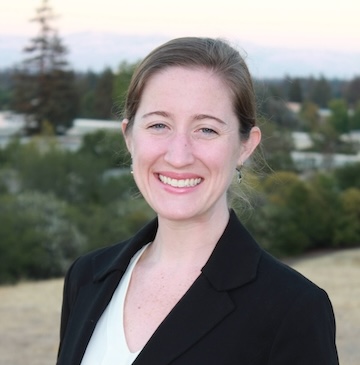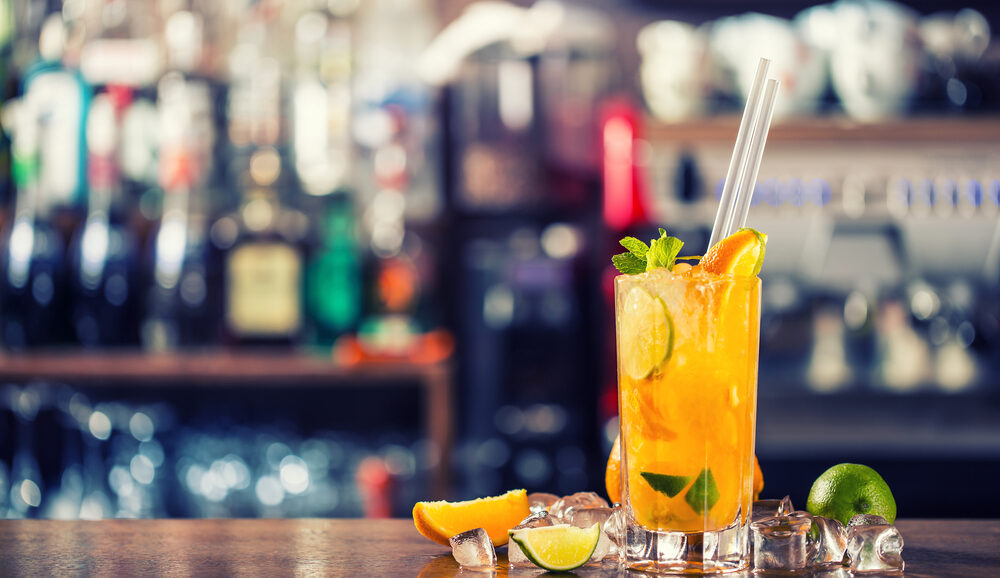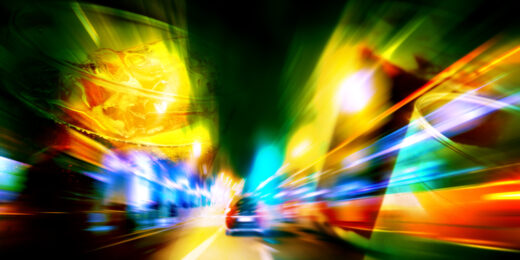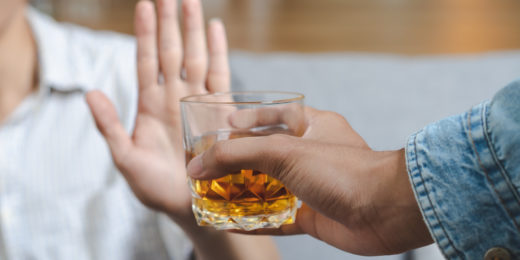Although Dry January is behind us, the non-alcoholic beverage trend is showing no signs of slowing. Sales of alcohol alternatives are growing 20% every year.
While the increased availability of non-alcoholic drinks may be better for the general health of society, the picture is less clear for those with alcohol addiction. Mocktails and non-alcoholic beer and wine could provide a healthier alternative to drinking, but for some, these alcohol-adjacent drinks might be too potent a reminder of the real thing.
Stanford Medicine clinical scholar Molly Bowdring, PhD, studies addiction and treats patients with alcohol use disorders. She became interested in non-alcoholic beverages because many of her patients reported using them in an attempt to curb their alcohol consumption.
Some studies have examined how non-alcoholic beverage use affects alcohol consumption in the general population, but few, if any, have addressed their use in the context of addiction, Bowdring said. She and her colleagues recently conducted an online survey of non-alcoholic beverage consumers to start to dissect the connections between their non-alcoholic beverage and use. They recently published a study in the journal Addiction describing their results.

We asked Bowdring to explain how alcohol alternatives can affect those battling addiction. Her answers have been lightly edited for length and clarity.
What prompted you to conduct this survey?
I had multiple clients who were struggling with alcohol use disorder share that they were using non-alcoholic beverages to try to support their moderation or abstinence goals, with varying degrees of success. I realized that there were no clinical practice guidelines for whether I should be encouraging or discouraging the use of these beverages.
These conversations were occurring in the clinic at the same time there's a big sober-curiosity movement going on. More people are becoming interested in reducing their drinking or even quitting completely.
As an addiction specialist, what do you think of trends like Dry January?
I think movements toward moderation and abstinence are great. In many ways, our culture really over-emphasizes the benefits of alcohol. I think the fact that more people are pausing and questioning their relationship to alcohol can only be a good thing, and it's really helpful to have community when you're making a health behavior change.
What is known about non-alcoholic beverage use in people with addiction?
In published studies, when people have evaluated the reasons for using and the frequency of consumption, they've looked at the general population. But these beverages might function differently for people with alcohol use disorder.
On one hand, non-alcoholic beverages might be appealing for people who don't want to give up the taste of alcohol or who want to fit in around others who are drinking. But on the other, the beverages come with a lot of alcohol cues. They contain the taste; the look; and, in many cases, even the brand, and that experience could lead someone to have cravings for alcohol and to pursue the full-strength version.
(Beverages) contain the taste; the look; and, in many cases, even the brand, and that experience could lead someone to have cravings for alcohol and to pursue the full-strength version.
Molly Bowdring
Can you describe the surveys you conducted?
We did an online survey of U.S. adults using a platform called Prolific; 1,906 people responded to that, and about 30% of them reported using non-alcoholic beverages in the past year. Those folks were invited to our second survey, which had 466 participants. We collected information about demographic characteristics, how often they consumed both alcoholic and non-alcoholic beverages, and their reasons for consumption. The top reasons for consuming non-alcoholic beverages were not wanting the negative effects of alcohol, like a hangover, and feeling like it's better for your health. The No. 5 reason (out of 19 offered) was trying to decrease or abstain from alcohol.
What did you find with regard to people with alcohol use disorder?
Because this was an online survey, we couldn't confirm the diagnosis of alcohol use disorder. But we used an established screening method that identifies people who are at least at risk of having it. We found that those who screened positive were more likely to consume the beverages to decrease or abstain from drinking alcohol; about two-thirds of these individuals reported having less alcohol consumption, basically saying these beverages helped them cut back. But what is a bit counter to that finding is that we did not see that the amount of non-alcoholic beverages consumed was associated with any difference in alcohol use severity among these people who screened positive.
You found that people who screened positive for alcohol use disorder reported drinking less alcohol when they consume non-alcoholic beverages, but they didn't actually drink less?
Seemingly. We use a measure called alcohol use severity, which is a combination of alcohol use frequency, quantity and number of days of heavy drinking. And that severity did not decrease in people with higher non-alcoholic beverage consumption. This really points to the need for studies that use objective measures of alcohol consumption rather than self-reporting. We're hoping to do that through a study where we would give participants portable breathalyzers to monitor their alcohol consumption as well as ask them to track their consumption of non-alcoholic beverages in more detail.
In the absence of clinical guidelines, what should be the main take-aways for people with alcohol use disorder?
These drinks often contain small amounts of alcohol, so if you're really trying to abstain completely, that's something to be mindful of.
The other thing to consider is those alcohol cues: When you're exposed to non-alcoholic beverages, does your alcohol craving increase? What I have done with the folks I've worked with is be curious about what they think is helpful versus unhelpful. I ask people to track their drinking for the week so that we can understand, when they have that mocktail, are they drinking less alcohol than they did on the night that they didn't have a mocktail?
I would invite folks, if they are already drinking non-alcoholic beverages, to reflect on the impact of that consumption on their alcohol cravings. If it leads to increased cravings, maybe it's not helpful for you. I think the usefulness of these drinks differs across individuals.
Bowdring also recently produced a podcast with the journal Addiction. Listen here is you're interested in hearing more.
Image: Marian Weyo






